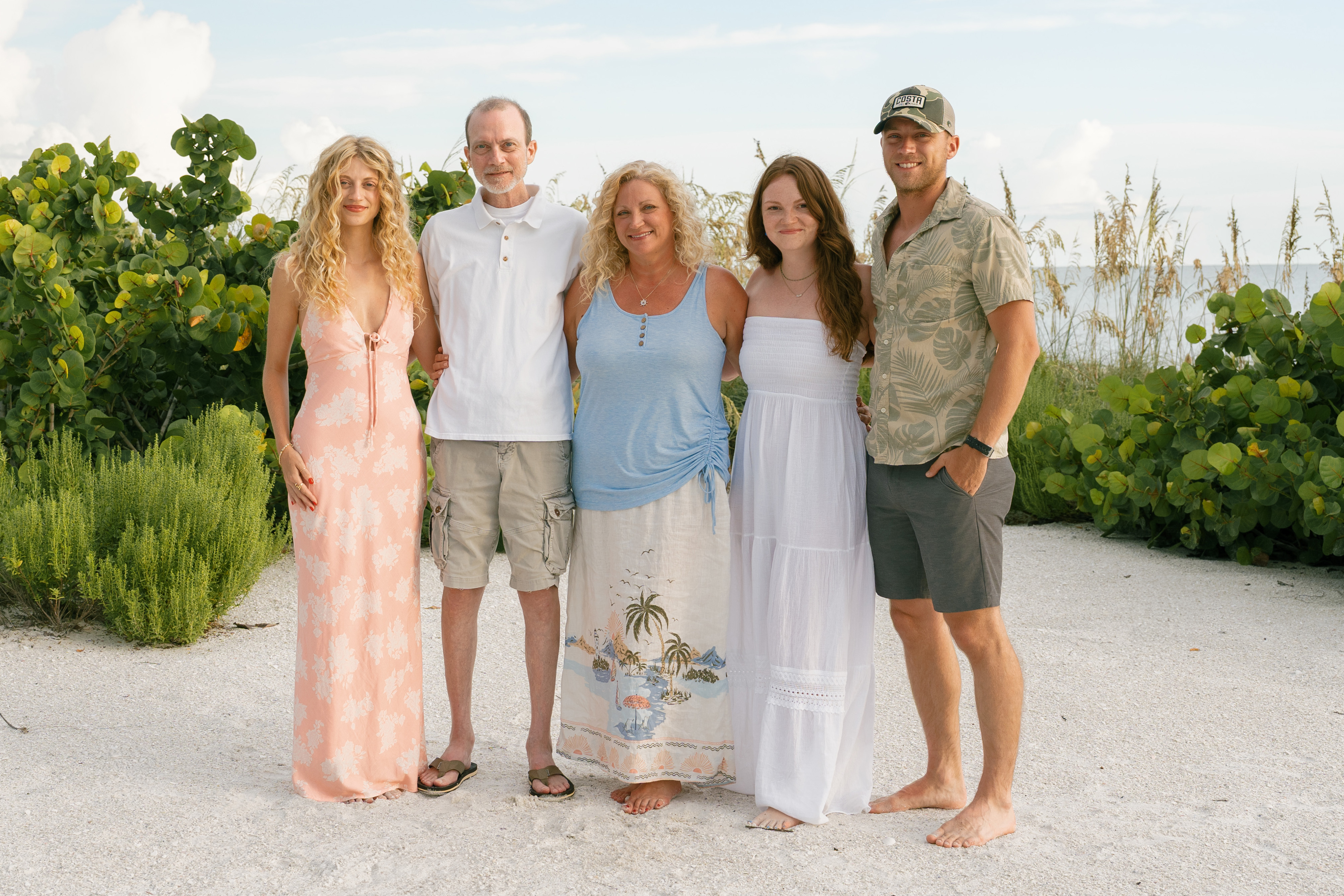For practically three years, Eric Tennant endured chemotherapy infusions, rounds of radiation, biopsies, and hospitalizations that left him weak and depleted.
“It’s good to be home,” he stated after one hospital keep in early June, “yet I’m tired and ready to get on with things.”
In 2023, Tennant, of Bridgeport, West Virginia, was recognized with cholangiocarcinoma, a uncommon most cancers of the bile ducts that had unfold all through his physique.
Not one of the preliminary therapies prescribed by his medical doctors had eradicated the most cancers. However a glimmer of hope got here in early 2025, when Tennant was advisable for histotripsy, a comparatively new process that may use ultrasound waves to focus on, and probably destroy, the biggest tumor in his physique — in his liver.
“My dad was a little nervous because it was something new, but it definitely gave us some hope that he would be around a little bit longer,” stated Tennant’s daughter, Amiya.
There was only one hitch: His insurer wouldn’t pay for it.
Tennant, 58, died of most cancers on Sept. 17. His story illustrates how a bureaucratic course of known as prior authorization can devastate sufferers and their households.

It’s infeasible to depend the individuals harmed by this overwhelmingly unpopular apply, which, by delaying or denying care, helps drive well being insurers’ earnings. No authorities company or personal group tracks such information.
That stated, KFF Well being Information has heard from a whole lot of sufferers lately who declare that they or somebody of their household has been harmed by prior authorization. Greater than 1 in 4 physicians surveyed by the American Medical Affiliation in December stated that prior authorization had led to a severe adversarial occasion for a affected person of their care. And eight% responded that prior authorization led to a incapacity, delivery defect, or dying.
In June, the Trump administration introduced a pledge, signed by dozens of personal insurers, to streamline prior authorization, which regularly requires sufferers or their medical groups to ask insurers for permission earlier than continuing with many kinds of care. It stays unclear when sufferers can anticipate to see enchancment.
The commitments “depend on the full cooperation of the private insurance sector” and can “take time to achieve their full effect,” stated Andrew Nixon, a spokesperson for the Division of Well being and Human Providers. However the pledge exists, he stated, “to prevent tragic deaths like Eric’s from occurring at the hands of an inefficient system.”
Chris Bond, a spokesperson for AHIP, a medical insurance trade commerce group, stated he couldn’t converse to any particular insurer’s prior authorization insurance policies. Broadly, although, he stated prior authorization “acts as a guardrail” to verify medicines and coverings are usually not used inappropriately.
On the identical time, he stated, insurers acknowledge that sufferers might be annoyed when their doctor-recommended care is denied. That’s why “there is a dedicated effort across the industry to make the process more straightforward, faster, and simpler for patients and providers,” Bond stated.
Within the meantime, the method continues to take its toll on individuals like Eric Tennant, whose grave diagnoses typically require costly well being care providers.
“Eric is gone,” his widow, Becky, stated. “He’s not coming back.”

Tennant was a security teacher for the West Virginia Workplace of Miners’ Well being Security and Coaching and insured by the state’s Public Staff Insurance coverage Company, which contracts with UnitedHealthcare to manage advantages for state staff, their spouses, and dependents.
In February and March, UnitedHealthcare, the Public Staff Insurance coverage Company, and an out of doors reviewer issued a sequence of denials that concluded Eric’s advantages wouldn’t cowl histotripsy, claiming the therapy was not medically vital. Becky Tennant estimated the process would price the household about $50,000 out-of-pocket.
Though the therapy wasn’t assured to work, it was price a shot, the Tennants thought, so that they thought of withdrawing cash from their retirement financial savings. However then, in Might, after KFF Well being Information and NBC Information posed a sequence of inquiries to UnitedHealthcare and the Public Staff Insurance coverage Company about Eric’s case, the company reversed course. PEIA determined to cowl his therapy.
Notably, the company contacted KFF Well being Information in regards to the approval hours earlier than it notified the Tennant household of the choice.
However the approval got here too late. Eric was hospitalized in late Might and prescribed treatment that prevented him from present process histotripsy at the moment. His household held out hope that his well being would enhance and he would qualify for the process that summer season.
In July, they took a household trip to Marco Island, Florida. It will be their final. Two days after they returned house, a scan revealed Eric’s most cancers had continued to unfold. Histotripsy was out of the query.

“I’m sad for what we will miss out on,” Becky stated. “I’m sad at the unfairness of it.”
She stated if Eric had been capable of bear histotripsy in February, as initially advisable by his physician, it might need destroyed the tumor in his liver that finally killed him.
“We’ll never know. That’s the thing. Any lawyer for the insurance will say, ‘Well, you don’t know it would have helped.’ No. You took that chance away from us,” she stated.
In October, Samantha Knapp, a spokesperson for the West Virginia Division of Administration, informed KFF Well being Information that the Public Staff Insurance coverage Company has not modified its insurance policies associated to prior authorization for histotripsy and continues to comply with UnitedHealthcare’s pointers.
UnitedHealthcare declined to reply questions for this text.
On Sept. 17, in a hospice mattress arrange of their eating room, Eric was surrounded by his household and their canine as he died. Becky held his hand as his coronary heart price started to drop.
“He wasn’t afraid to die, but he didn’t want to die,” she stated. “And you could tell the last day that he was fighting it big time.”
On the very finish, she whispered in his ear: “You know I love you. You have been the best husband and the best dad, and you’ve always taken such good care of us,” Becky recalled.
After which, she stated, he gasped. His eyebrows appeared to shoot up in surprise. Throughout his final second alive, she stated, he smiled.
“The look on his face was pure, total amazement,” she stated. “I still can’t believe he’s not here.”

Do you could have an expertise with prior authorization you’d prefer to share? Click on right here to inform KFF Well being Information your story.




